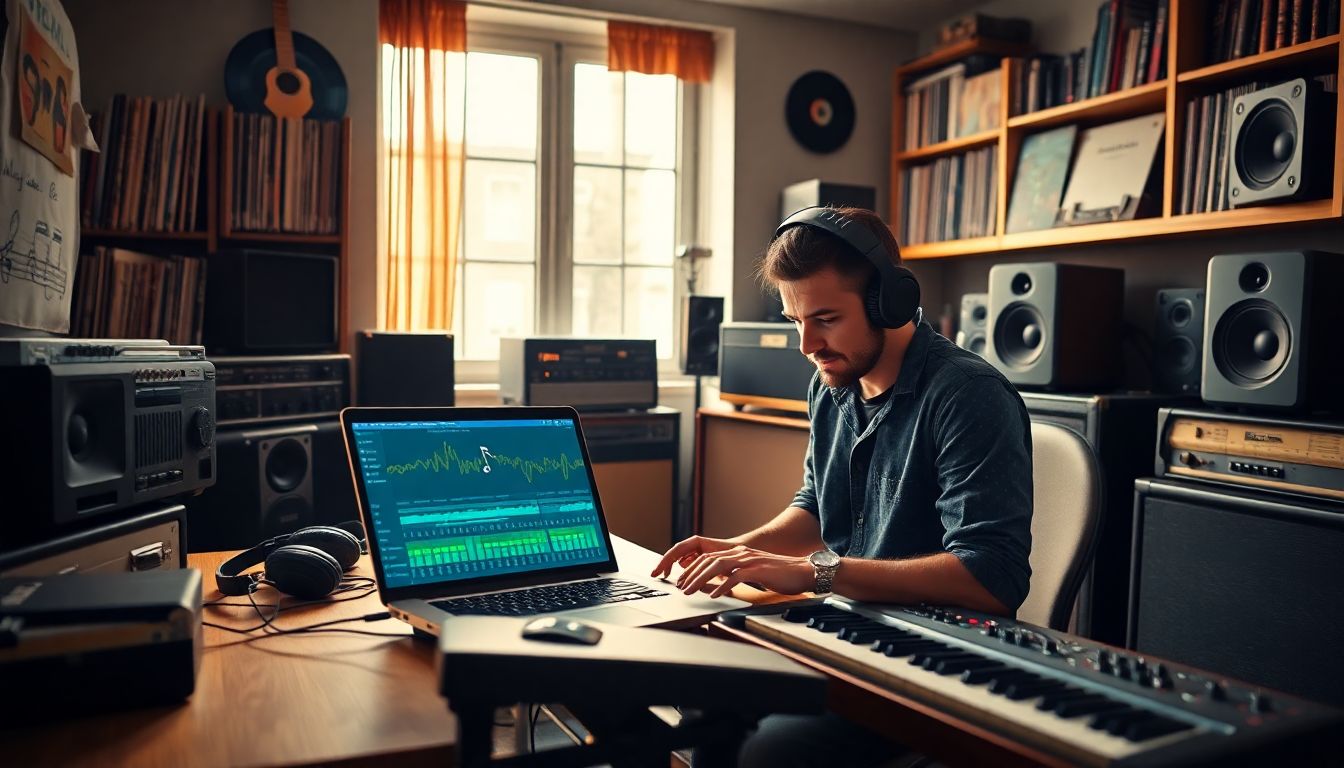Unlocking Success with Music Advance: A Comprehensive Guide to Elevate Your Musical Career

Introduction
Getting ahead in the music business isn’t just about making good music. It’s about making smart choices that push your career forward. One of those choices is securing a music advance. It can be the difference between struggling on local stages and hitting big on the national scene. This guide will take you through everything you need to know about music advances — what they are, how they work, and how to use them to grow your career.
What is a Music Advance? Understanding the Basics
Definition and Explanation of Music Advance
A music advance is money given to an artist before they earn it from sales or performances. Think of it as a loan that helps you fund your music project. Unlike grants, advances usually come from record labels, publishers, or investors who expect repayment from future earnings. It’s a way to get the resources you need upfront to boost your music career.
Types of Music Advances
- Recording advances: Funds for studio time, mixing, and production costs.
- Tour advances: Money to cover performance fees, travel, and accommodation.
- Publishing advances: Support for songwriting, licensing, and music publishing rights.
How Music Advances Work
When an artist gets an advance, it’s usually part of a contract. The agreement states how much you receive, how you will pay it back, and your royalty splits. Record labels, publishers, and managers typically provide advances after evaluating your potential. In most cases, repayment comes from earnings like album sales, streaming, or concert revenue.
The Benefits of Securing a Music Advance
Financial Support and Resources
An advance provides the cash needed for top-quality recordings and marketing. It helps you avoid cutting corners and makes your music more competitive.
Industry Credibility and Exposure
Getting an advance shows that industry professionals believe in your talent. It can be a confidence booster and a sign of legitimacy that helps attract more opportunities.
Accelerated Career Growth
Many artists have used advances to reach new audiences quickly. Think of it as giving your career a turbo boost to get to the next level faster.
Strategic Investment Opportunities
A wisely used advance can build a solid foundation. It’s your chance to invest in the right tools, team, and resources for long-term success.
Navigating the Music Advance Process
Preparing a Compelling Proposal
Before requesting an advance, you need to show your potential. Important elements include:
- A strong press kit
- Demo recordings that showcase your sound
- A plan for growth and future releases
Sharing how you plan to turn this investment into profit makes your case stronger.
Finding the Right Partners
Look for labels, publishers, or investors that align with your style. Building genuine relationships is key — attend industry events, network with other artists, and stay active online.
Negotiating Terms and Contracts
Carefully review the deal. Watch out for details like:
- How and when you pay back the advance
- Your royalty splits
- Rights to your music It’s smart to get legal advice or consult an industry expert before signing.
Managing and Utilizing Advances Effectively
Create a detailed budget covering studio time, marketing, and touring. Track your expenses closely and measure your progress. Being organized makes sure your money goes where it matters most.
Strategies to Maximize Music Advance Opportunities
Building Your Brand and Fan Base
Grow your social media followers and play more live shows. A larger, engaged audience makes you more attractive to investors.
Producing High-Quality Content
Investing in professional recordings, visuals, and videos shows your seriousness. High-quality content demonstrates your potential to make big waves.
Networking and Industry Engagement
Attend festivals, showcases, and industry panels. Collaborate with producers and other artists. These connections can open doors for future advances.
Leveraging Data and Analytics
Use streaming stats, social media growth, and fan engagement metrics. Presenting data that shows your progress convinces investors you’re worth backing.
Alternatives to Traditional Advances
If direct advances aren’t available, consider:
- Crowdfunding through platforms like Kickstarter or Patreon
- Applying for grants and scholarships
- Partnering with brands for sponsorships
These options can also help fund your projects without traditional contracts.
Case Studies: Successful Music Advances
Many big-name artists started with a big advance. For instance, Adele’s early record deal provided funds she used to build her career. Lessons from such stories show the importance of choosing the right partners and investing in quality. For newer artists, securing an advance can be the stepping stone to national recognition.
Conclusion
Understanding and properly using a music advance can set your career on a faster track. It’s more than just money — it’s a tool to invest in your future. Careful planning, smart negotiations, and persistent effort are key. Keep building your brand, stay focused, and don’t shy away from seeking expert advice. With the right approach, a music advance can turn your dreams into reality and support your journey to success.



